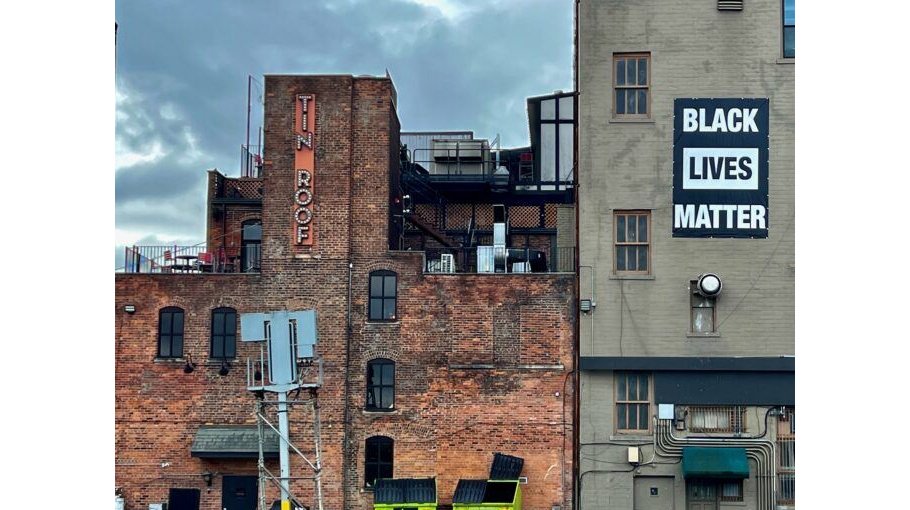Cities made differently: Try imagining another urban existence

In thousands of ways, we are taught to accept the world we live in as the only possible one, but thousands of other ways of organizing homes, cities, schools, societies, economies, and cosmologies have existed and could exist.
We started a project called Made Differently: designed to play with the possibility and to overcome the suspicion—instilled in us every day—that life is limited, miserable, and boring.
Our first focus is Cities Made Differently, exploring different ways of living together. Read and imagine four different kinds of cities taken from our book which are listed below, and continue your exploration, downloadable at a4kids.org, for drawing and dreaming.
City of Greed
What if you had to live in a city whose citizens must pay not only for housing and health care but also for the air they breathe?
The dystopian novel The Air Merchant takes place in a secret underground factory city. Mr. Bailey, the factory owner, condenses air from the atmosphere and sells it to his fellow citizens for a profit. Eventually, the Earth’s atmosphere thins, creating a catastrophic shortage of breathable air. With the price of air increasing, fewer and fewer humans can afford to keep breathing.
When people can’t pay for the air they breathe, the police throw them out of the city. Everyone lives in constant fear of suffocating, thinking only of how to earn enough money to spare their loved ones and themselves that terrible fate. The food company Nestlé is often criticized for its irresponsible use of water in India, Pakistan, and other developing countries. Captured in the documentary film We Feed the World (2005), former Nestlé chairman Peter Brabeck-Letmathe said:
“It’s a question of whether we should privatize the normal water supply for the population. And there are two different opinions on the matter… NGOs, who bang on about declaring water a public right… That’s an extreme solution. The other view says that water is a foodstuff like any other, and like any other foodstuff, it should have a market value. Personally, I believe it’s better to give a foodstuff a value so that we’re all aware it has its price…”
City as a Family
Imagine a city without any strangers, where everything is shared, and everyone looks after each other. There are no shops, no money, and no danger at all.
We think of the family as a group that practices “basic communism”: from each according to his ability to each according to his needs. Any family is thought to be protected by bonds of kinship from the cruel laws of the outside world. Unlike businesses, rarely will a family throw out a sick child or an elderly parent because they are no longer “revenue-generating assets.”
According to Roman law, which still underlies the value system of Western societies, a family was all those people living within the household of a paterfamilias or father whose authority over them was recognized as absolute. Under the protection of her father, a woman might be spared abuse from her husband, but their children, slaves, and other dependents were his to do with as he wanted.
According to early Roman law, a father was fully within his rights to whip, torture, or sell them. A father could even execute his children, provided that he found them to have committed capital crimes. With his slaves, he didn’t even need that excuse.
The patriarchal family is also the model for authoritarianism. In ancient Rome, the patriarch had the right to treat his household members as property rather than as equal human beings.
The Enlightenment philosopher Jean-Jacques Rousseau believed that humankind originally lived in small bands of hunter-gatherers composed of close friends and relatives until big cities and agriculture emerged, and with them wars, greed, and exploitation. However, archaeology shows us numerous examples of how people in different times and across different parts of the Earth lived in large metropolitan areas while managing their collective affairs on a fairly egalitarian basis. At the same time, there have always been small communities where status inequality prevailed and a privileged minority at the top benefited by exploiting the rest.
We know from our personal experience that in almost every family there are elements of both authoritarianism and baseline communism. This contradiction never fully goes away but different cultures handle it differently.
A City оf Runners
The people who live in this city believe that real life is all about constant competition.
The people in a city of runners find it fascinating or even necessary to keep track of who among them is more important, who is richer, smarter, more beautiful, or more worthy. There are many ideas about how the city came to have habits like this.
David Graeber was an
anthropologist and activist and is a bestselling author. Nika Dubrovsky is an artist, writer, and founder of the David Graeber Institute and the Museum of Care.
Source: CounterPunch



